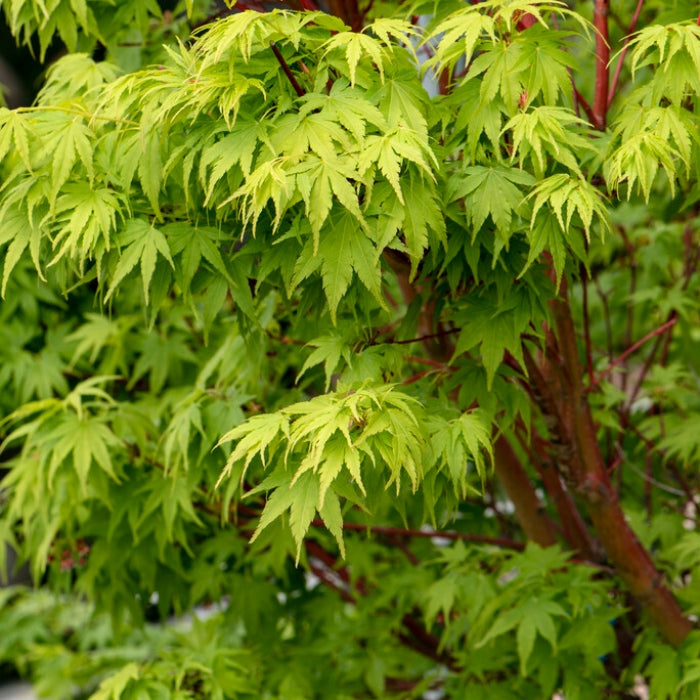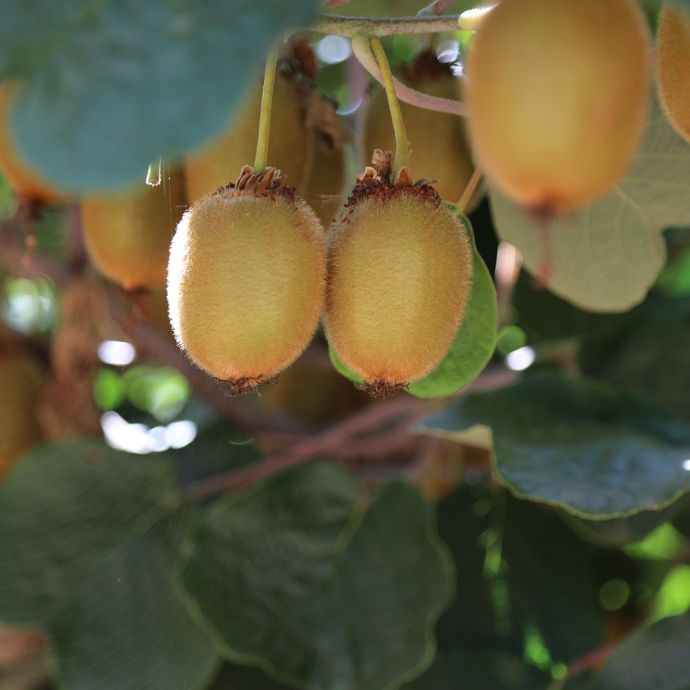Bandstand Beds - May Garden of the Month
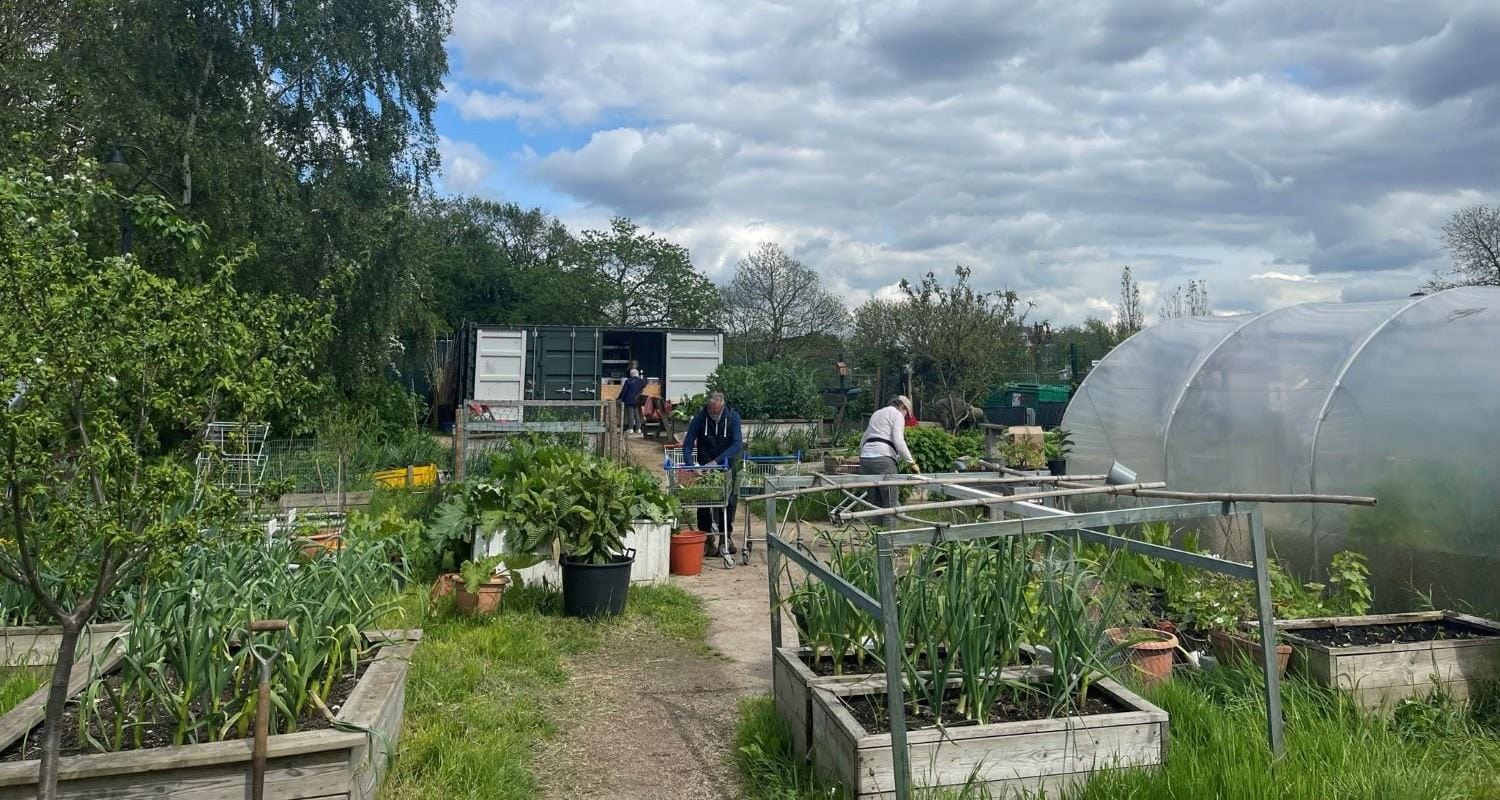
An edible oasis in the heart of London
Looking for planting inspiration to make your garden shine all year round? Every month we visit a garden which we think has nailed the best trends of the season, then report back with tips on which plants to use and how to recreate the look. This month we’re all about the homegrown fruit and veg, so we’re off for some inspiration from a food growing community in the middle of London. Bandstand Beds on Clapham Common has grown from a few beds and a patch of derelict ground to a vibrant and thriving community garden where anyone is welcome to come and grow their own produce, then cook and eat it together.
Chair David Dandridge told us that the garden has come a long way in the ten years it’s been going. Set up to encourage people to grow plants, then extend that out into their own homes and communities, this once barren patch of land is now a green oasis of trees, edible plants and wildlife - and a real community hub.
What’s happening in May?
This month at Bandstand Beds, there’s plenty to get your teeth into. Anyone can become a member and take part in the regular gardening sessions on Saturday mornings and Wednesday evenings. There’s also a weekly dementia-friendly group for over 55s and children’s events.
And of course there’s always plenty of good fresh produce available for a donation.
Highlights
The orchard and fruit beds
As David points out, a lot of people in London either live in flats or in houses with no outdoor space, which makes it pretty nigh on impossible to grow their own fruit trees. It was by clearing and repurposing an area of wasteland known locally as ‘the dump’ that the Bandstand Beds orchard was created. The plum, apple, cherry and pear trees that were planted in 2014 are now mature and very popular with local residents - to go with them, a series of fruit beds opposite the playground are home to blackcurrant and gooseberry bushes and a thriving rhubarb bed.
Wildlife pond
“Every garden should have ponds,” says David. One of the best things about spring is seeing the emergence of frogs and tadpoles and there are plenty living in the pond here at the moment. David says that over the past few years gardening has moved further towards encouraging wildlife and to contribute to this they’ve kept some areas of the garden wild and unkempt, with piles of logs and dead leaves providing habitats for bees, bugs and hedgehogs. When frogs make their home in your garden, you really know you’re doing something right!
Top tip: “Once the tadpoles develop legs, they’re no longer vegetarian and unless you feed them they won’t get enough protein and they’ll start eating each other.”
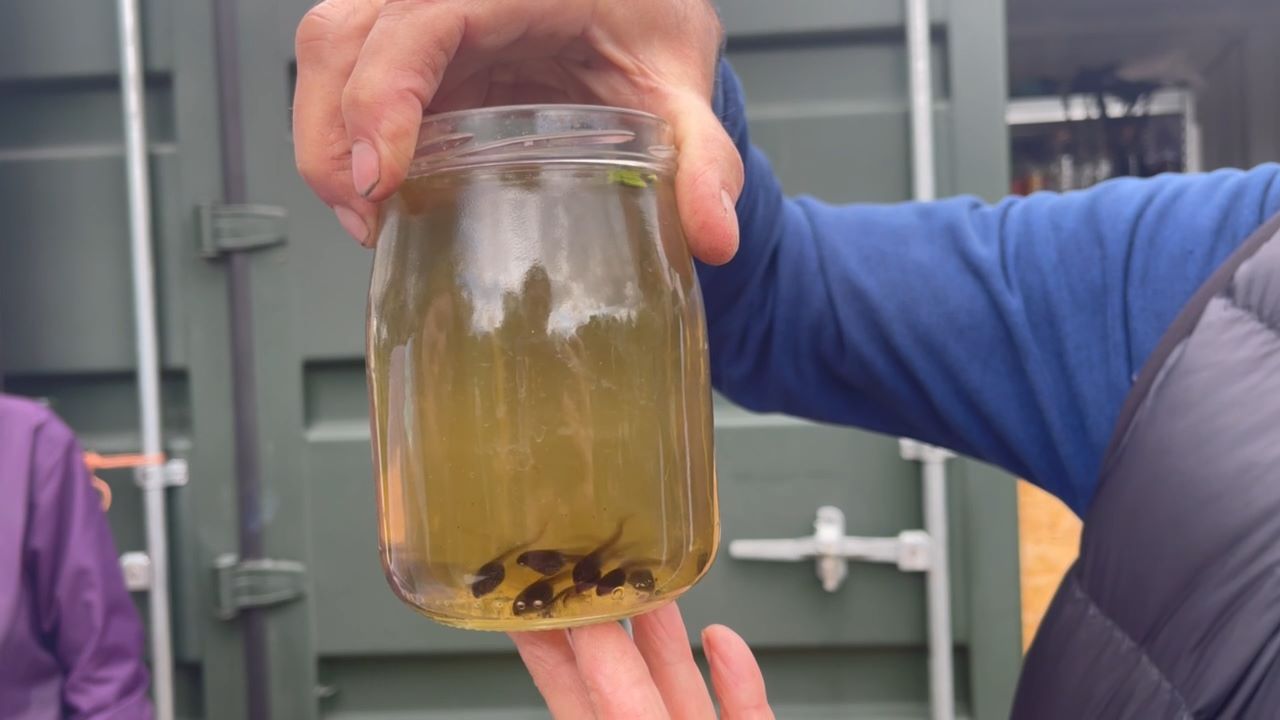
Polytunnel
The gardens’ walk-in polytunnel is really popular with visitors - especially when it’s raining! All sorts of crops that need to be kept warm are grown here, including squashes, tomatoes and chillies. The new season’s chilli plants are thriving at the moment, with plenty of blossom forming.
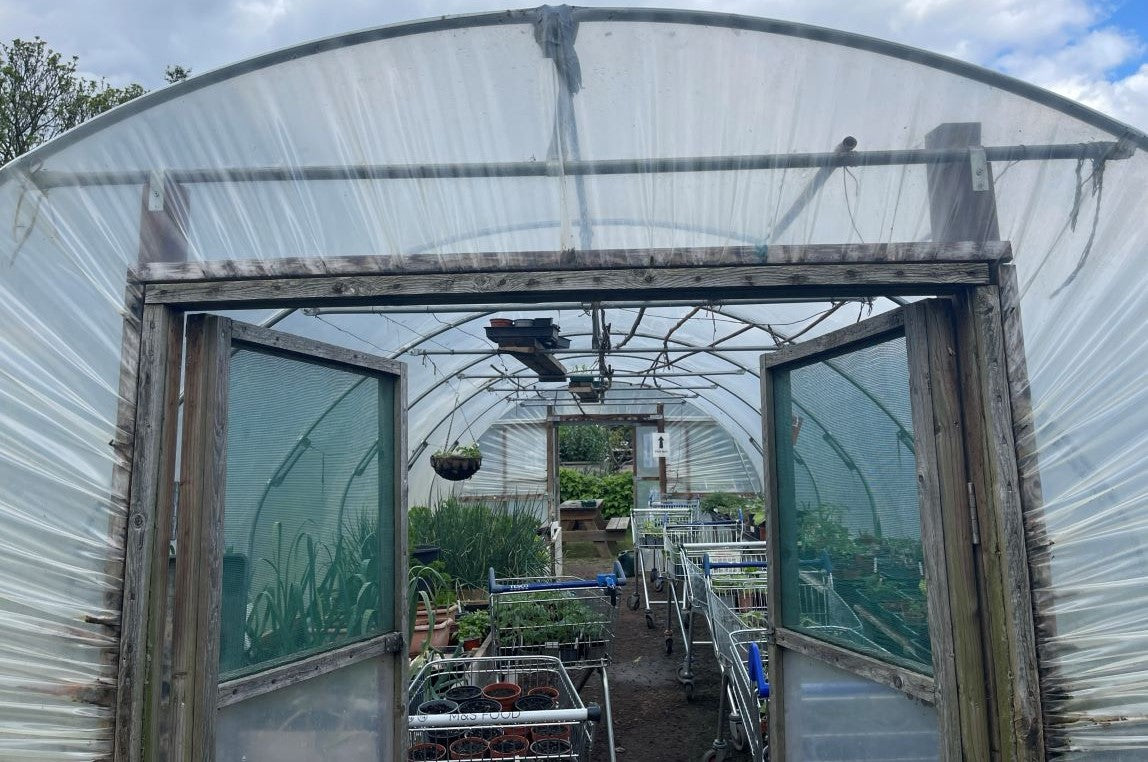
Raised veg beds
Raised vegetable beds are not only a great way of growing vegetables, they also allow greater access to gardening for people who can’t easily bend down or dig - an essential in a community garden. The Bandstand Beds gardeners use their own homemade compost to grow a wide range of edible plants including beans, peas, carrots, beetroot, onions and potatoes.
Field kitchen
A recent addition to the garden is a shipping container that’s been converted into a field kitchen, allowing produce to be grown, picked and cooked within a few square metres. It also brings people together - “Lots of people feel very isolated and gardening is the common ground where they can come together,” says David. Following on from the success of the field kitchen, Bandstand Beds are now also working with local homelessness charity Ace of Clubs to help them establish their own kitchen garden.
Get the look
Plant a mini orchard
You don’t need a lot of land to grow your own fruit - a lot of apple, pear, cherry and plum varieties are available in dwarf and patio sized versions that you can grow in an average garden or even in a large pot. Soft fruits are even easier - blackcurrants grow much better in the ground, but fruits like gooseberries, blueberries, strawberries and even rhubarb can be grown in pots on a patio or balcony.
Make a pond
If you want to bring wildlife to your garden, a pond is one of the best things you can do. It doesn’t have to be a massive building project - a pond in a pot is great for frogs, birds and insects and will fit in even the smallest garden or on a patio. Why not also devote part of your patch to wildflowers? The bees and bugs will love you for it.
Start a vegetable garden
A few raised beds can provide you with a lot of vegetables throughout the year - put in a little initial work and you’ll get out healthier, fresher and tastier food picked fresh from your garden when you need it. Why not try some of Bandstand Beds’ tried and trusted favourites that are easy to grow, like tomatoes, lettuce, peas and beans?
You don’t need a polytunnel to grow chilies, peppers and herbs - if you have a warm windowsill, conservatory or greenhouse, you can grow them in pots indoors.
Zero waste food
When you’ve grown your own vegetables, you want to make the most of every leaf, pod and bean. Sometimes, though, you’ll end up with too much of one crop and that’s where you need to get creative with storing and preserving your harvest. Bandstand Beds have lots of ideas for squash and beans and here’s a chutney recipe that’ll make sure you don’t waste so much as an unripe tomato!
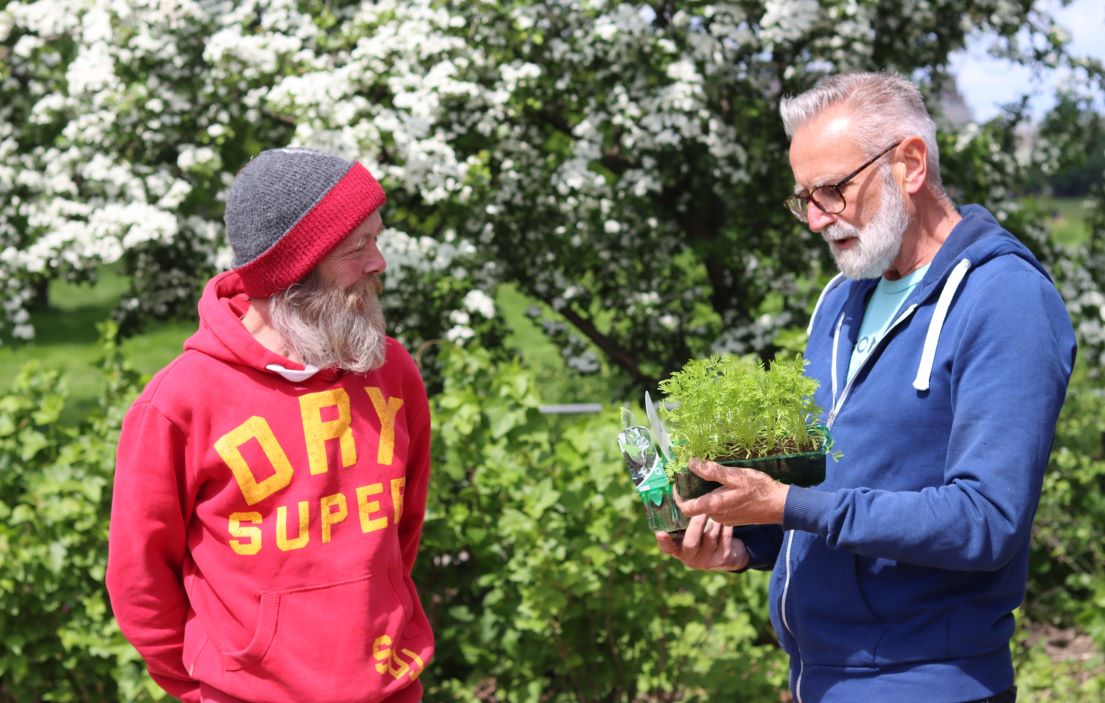
Feeling inspired?
If you live in London, why not go along and see what’s growing at Bandstand Beds? You can also get involved in growing wherever you are, with community gardening becoming increasingly popular. Contact your local library or council to find out what opportunities there are near you - or start your own.Last updated: 27/11/2023
